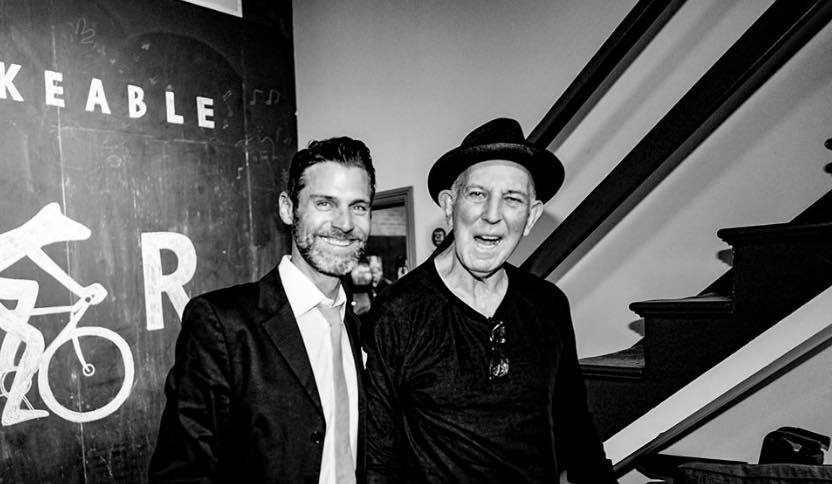
18 Jun FoLAR Board Chair M-K O’Connell Remembers Lewis MacAdams
Alongside his passionate activism, Lewis MacAdams had a fiery eloquence and a poet’s mastery of image and language. It was his words that I first encountered, long before I met the man himself. I remember reading an op-ed piece he published about twenty years ago and being struck by the tremendous opportunity that existed in what was then just a concrete channel. An opportunity that Lewis—as a poet, as an activist, as a visionary, as an Angeleno—could readily see and so compellingly articulate. After reading that piece, I was hooked. The Los Angeles River was—and is—an essential part of our vibrant city.
Over the years, I came to appreciate that Lewis’s powerful effect on me was hardly unique. Indeed, Lewis inspired a wave of river lovers and believers and prompted a surge of river-related activism; his message—that we were missing so much as a community by leaving the river derelict—was embraced by thousands of Angelenos.
Whenever Lewis and I got together for lunch—generally at a downtown institution like Phillipe’s or Clifton’s—Lewis always arrived fashionably late. He would stroll in looking like a hip uncle, sporting his fedora and scarf. Then he would break out his purple reading glasses to scan the menu. He was the epitome of urban cool.
Lewis would update me on the key issues along the River and how things fared with FoLAR. As a poet, he inspired us, but as an activist, Lewis got the job done. He confronted local and state leaders, eventually convincing the powers-that-be of the value and potential of this waterway.
Over the years, Lewis sang the melodies of yellow warblers, tapped rhythms only a red-legged frog could teach, and strummed the mother of all power chords in tribute to the steelhead trout. Using his poetry as a clarion call, he helped mobilize the citizens of this city to fight for his vision: a sylvan, pristine river for all of Los Angeles.
In my last meetings with Lewis, when he took up residence at an assisted living apartment in East Hollywood, he was an altogether different man. He was pleased by the progress along the river, but it pained him to not be a part of it. I could see how Lewis gave everything to the river, and without it he felt adrift. When I came by with river and FoLAR updates, he would listen attentively, drinking in every piece of news. I wanted to bring news of even greater progress along the river, just to lift his spirits. Those meetings helped me appreciate that true selflessness is to give everything to a cause, even if the final goal remains elusive.
As Lewis often said, “If it’s not impossible, I’m not interested.” Every staffer, supporter, and member in the course of FoLAR’s winding history has been inspired by Lewis in some way. The 75,000 volunteers over 30 years of River CleanUps are grateful for the example he set, and the lead we will follow.
But perhaps Lewis’s greatest legacy—perhaps what would make him most proud—is what will undoubtedly occur in the not-too-distant future. It’s the song of the warbler, the croak of a frog. It’s the splash of a trout zig-zagging through the water. It’s the pat of footsteps on a path along this river as it meanders fifty-one miles from the mountains to the Pacific Ocean. And the people along that path will breathe it all in and think of Lewis and his unwavering dedication to these waters and these birds and these fish, and ultimately, to this city, Los Angeles.

